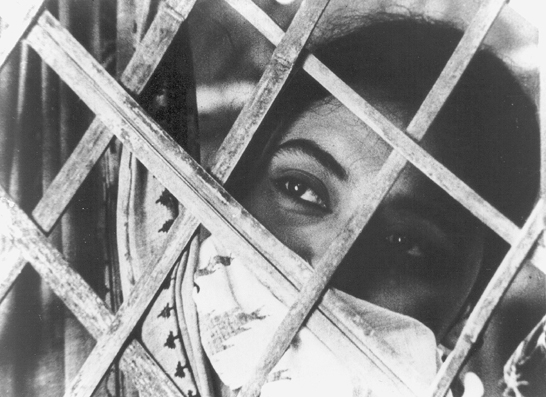
Coloud Capped Star will have public screening on September 10 at TIFF Bell Lightbox 4, 9:00pm.
Ghatak’s film Meghe Dhaka Tara (The Cloud-Capped Star) which will be shown at the Toronto International Film Festival (TIFF) this year under the TIFF Cinematheque category had an advance press screening.

Cameron Bailey TIFF artistic-director… Toronto film goers receive an exclusive chance to watch this film.
It will have a public screening on September 10 at TIFF Bell Lightbox 4, 9:00pm. The story of the film was written by Ritwik Ghatak in collaboration with late Satyajit Ray, another great filmmaker who kept India on the world map for great cinema in 1950s and 60s. Fortunately, most of the great movies were protected without affecting its original sound and picture quality.
“One of the five or six most beautiful melodramas in the film industry,” wrote an influential French film critic, Serge Daney describing the The Cloud-Capped Star.
Brad Deane curator of TIFF Cinematheque, a new programme at the Toronto International Film Festival that features recent restorations from the history of Canadian and international cinema says Ghatak’s The Cloud Capped Star is a hidden gem in his section and a must-see film if you want to cry. TIFF co-director Cameron Bailey says the film is special to the festival and Torontonians receive an exclusive chance to watch a Ghatak masterpiece.
The heartwarming story of the film is about a young Indian woman who sacrifices her life to uplift her family by taking the burden and the responsibility. When her own family member takes advantage of her situation and grabs her future partner, the eldest in the family, Nita still holds on to her responsibility sobbing by alone.

Ritwik Ghatak: One of greatest and most innovative filmmakers India had produced.
When everybody in the family says one of her siblings, Shankar must give up his music and take a job to help the family; she protests and defends her brother. Nita knows the dedication and desire of her brother who wants to end up as a musician.
Just before dawn everyday Shankar sits near the river bank and sings to the rising sun. Nita’s adorable look at Shankar shows her great expectation for a successful future for her brother. Nita’s younger sister Gita always wants to build up her future. Their two names rhyme, however their personalities are very different.
While arrangements are underway on for the wedding Shankar leaves home.
Nita keeps on working and studying and most of the time she neglects herself by skipping meals, a pattern that makes her ill.
Meanwhile Shankar becomes very popular musician in Mumbai (then Bombay).When he returns home he discovers that Nita is suffering with an infectious decease, Tuberculosis.
Soon he arranges a Sanatorium in the hills for her to recover from the dangerous and infectious disease. I remember the words, “Those who suffer for others will suffer forever.”

Brad Deane, curator of TIFF Cinematheque…Watch this film if you want to cry.
Few months later Shankar visits the Sanatorium to see his sister. The nurse in charge delivers the good news of her recovery. She said, “Nita is recovering and still needs rest and care for full recovery. She is very weak and requires a lot of rest and can’t handle too much sorrow or happiness.”
Nita is so happy to see her brother and asks about others at home. Then Shankar replies, “Now we have two-story house built in the same complex. I fulfilled our mother’s dream. She always wanted a two-story house. Gita’s son is climbing the stairs by of his own. Our parents are enjoying the company of their grandson. The little one has lighted up the whole house.”
Then Nita says, “Tell me just once that I’ll live! I want to live!” she yells and falls into the arms of her brother. Her last words echoes over the lonely hills around the Sanitarium.
I remember how true is the words of J. Hoberman’s words in Village Voice, “A masterpiece….Few films have delved most deeply into the cruelty of family life…The summit of Ghatak’s art”.
TIFF programmer, James Quandt has included the above quotations in his writing to introduce the great movie which was produced in 1960.
